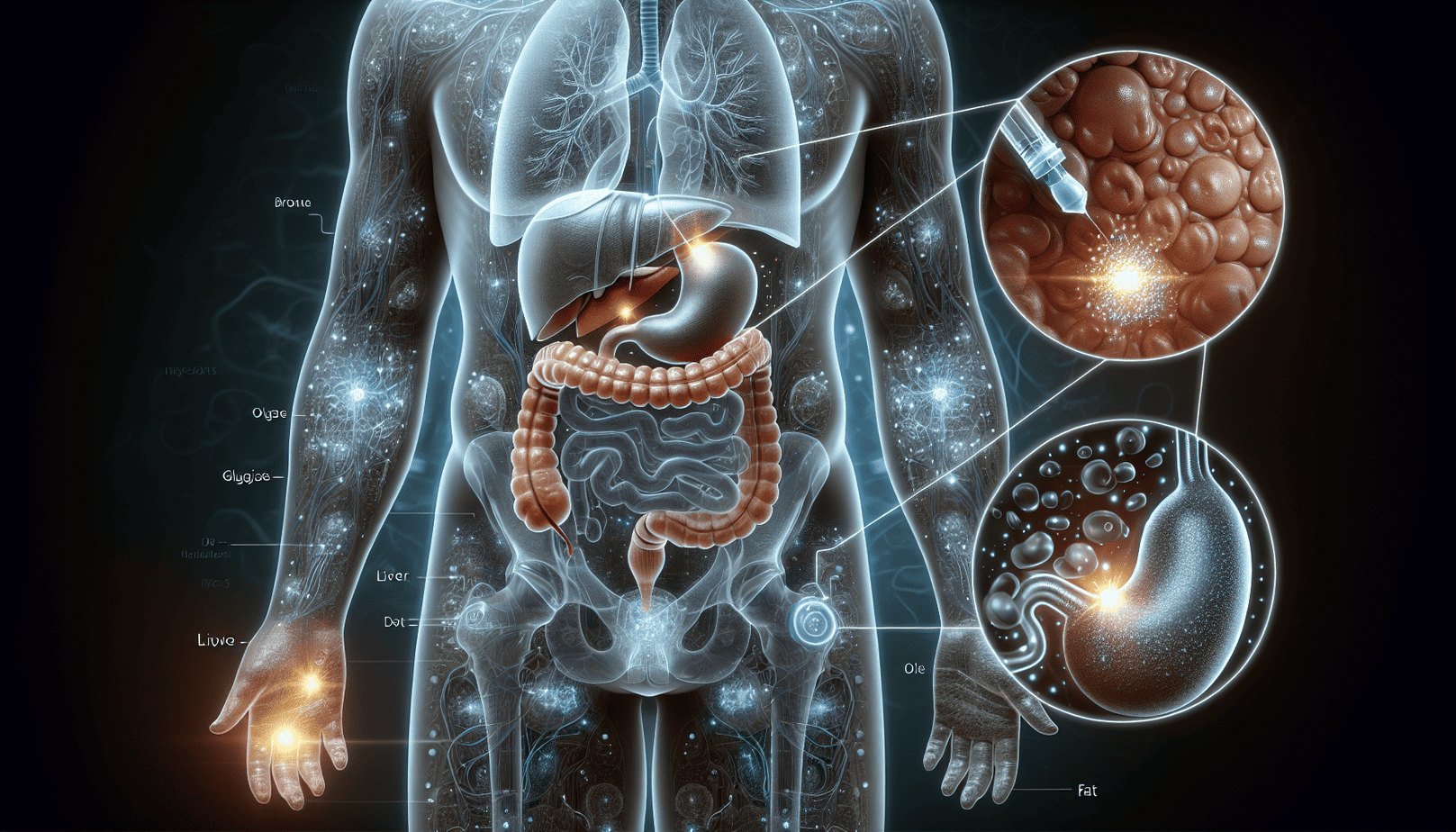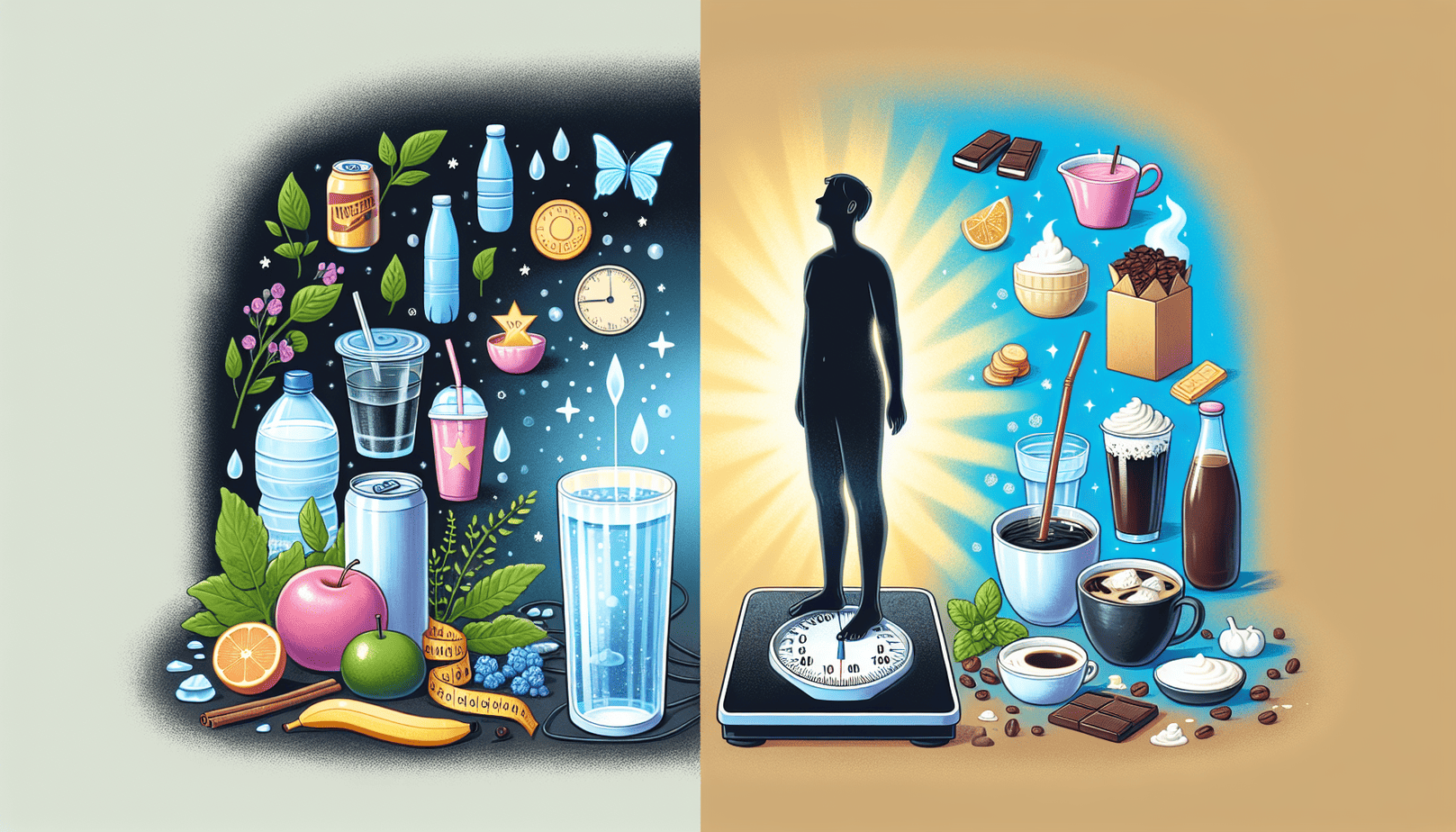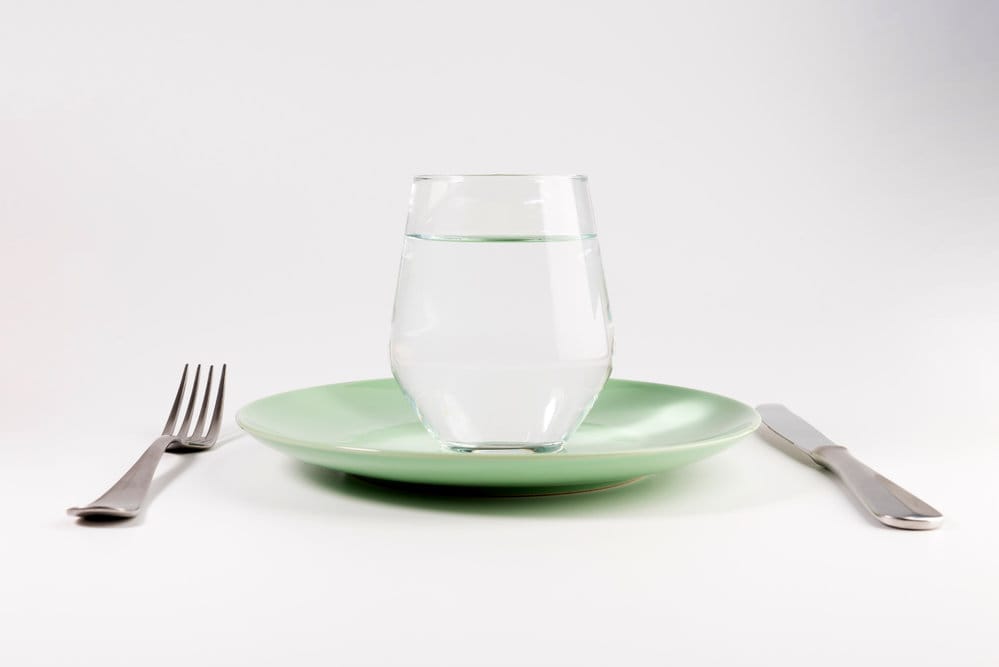In the quest for optimal health and well-being, clean fasting has emerged as a compelling dietary practice. Clean fasting, a type of intermittent fasting, offers a unique approach to weight management and overall health.
By consuming only zero-calorie beverages during fasting periods, clean fasting goes beyond simple calorie restriction, unlocking an array of potential health benefits.
Key Takeaways
-
Clean Fasting is a powerful approach to weight loss and improved cellular health.
-
The zero-calorie rule requires consumption of only non-caloric beverages during the fasting period.
-
With careful planning, clean fasting can be successfully integrated into one’s lifestyle for maximum benefits such as enhanced mental wellbeing and improved insulin response.
Exploring the Essence of Clean Fasting

The basic concept of clean fasting revolves around consuming only zero-calorie beverages like water, black coffee, and plain tea during the fasting period. This protocol not only minimizes calorie intake but also ensures your body stays in a state of fasting, reaping the full benefits of this practice.
The beauty of clean fasting lies in its simplicity. There are no complicated diet plans to follow or counting calories. Just a straightforward rule – zero calories during the fasting period.
Despite the simplicity of the principle, the advantages are substantial, encompassing weight loss, better insulin response, and boosted cellular health.
The Zero-Calorie Rule
The zero-calorie rule forms the bedrock of clean fasting. It’s the guideline that sets clean fasting apart from other types of fasting. The rule is simple: during the fasting period, consume only non-caloric beverages. This means no food, and no caloric beverages – only water, black coffee, or plain tea.
The reasoning behind this rule is scientifically based. When you consume zero calories, your body continues to operate in a fasted state. This triggers a metabolic switch, prompting your body to start burning fat for energy.
The result? Enhanced burning fat, improved insulin response, and better control of blood sugars – the trifecta for effective weight loss and improved metabolic health. By choosing to eat fewer calories, you can further support this process and achieve your goals more efficiently.
Acceptable Beverages
What are the permissible beverages during a fasting diet? Typically, this includes water, tea, and coffee without any additives like milk or sugar. The answer is simple: water, black coffee, and plain tea.
These beverages keep you hydrated without breaking the fast. Water is the perfect fasting companion, supporting satiety and maintaining hydration without affecting blood sugar or insulin levels.
During clean fasting, you can enjoy the following beverages:
-
Black coffee: calorie-free and can rev up your metabolism without disrupting the benefits of fasting
-
Plain tea: calorie-free, hydrating, and a pleasant alternative for those who don’t fancy black coffee
-
Herbal teas: calorie-free, add variety to your hydration choices, and bring along their unique set of health benefits
The Role of Hydration
Hydration plays a significant role in clean fasting. It’s not just about quenching your thirst. Staying hydrated during clean fasting is crucial for overall health. It helps:
-
Flush out toxins
-
Support digestion
-
Maintain energy levels
-
Manage hunger and cravings
Adequate hydration can make your fasting journey smoother.
Dehydration during a clean fast can lead to fatigue, dizziness, and headaches, which is why it’s so important to keep your fluids up. Water is your best bet, but you can also drink mineral or sparkling water to add some variety to your hydration regime during a clean fast.
The Science Behind Clean Fasting

Robust scientific evidence supports the advantages of clean fasting. It’s more than just a weight loss strategy. Clean fasting can offer numerous health benefits, including improved insulin response, blood sugar regulation, and enhanced cellular health through autophagy.
The magic of clean fasting lies in its ability to:
-
Regulate the body’s insulin levels
-
Control blood sugar
-
Enter a state of ketosis when you consume only water, black coffee, or tea during your fasting period
-
Encourage the use of stored glucose and fat for energy
-
Result in lower blood sugar levels
Moreover, clean fasting can help regulate insulin levels and enhance the body’s response to insulin – a key player in regulating blood sugar and maintaining healthy blood sugar levels.
Insulin Response and Blood Sugar Control
Insulin, a hormone released by the pancreas, plays a crucial role in maintaining stable blood sugar levels. It signals cells to absorb glucose from the bloodstream and convert it into energy.
But when the body’s cells become less responsive to insulin, blood sugar control can be impaired, leading to higher blood glucose levels and potentially triggering conditions such as prediabetes or Type 2 diabetes.
Clean fasting can work as a powerful tool for improving insulin sensitivity and reducing insulin resistance. After a period of fasting, insulin sensitivity increases and insulin levels decrease, leading to better blood sugar control. This can lead to fat loss and improved metabolic health, making clean fasting an effective strategy for weight management.
Autophagy and Cellular Health
Autophagy is a fascinating biological process where cells eat themselves (“self-cannibalize”), destroying their own damaged or dysfunctional components to make way for new, healthier ones.
It’s like a cellular spring cleaning, and clean fasting can kick this process into overdrive. Fasting stimulates autophagy, helping cells to digest and recycle damaged components, generating energy for survival.
It’s a self-sustaining cycle that improves cellular health, protecting cells from diseases and promoting metabolic health. The result? Improved cellular health, a healthier metabolism, and enhanced longevity.
Comparing Clean and Dirty Fasting

At first glance, clean fasting and dirty fasting may appear alike, but they exhibit notable differences. The main distinction lies in their rules regarding caloric intake during the fasting window. Clean fasting is a zero-calorie game – during the fasting window, you consume only water, black coffee, or tea.
Dirty fasting, on the other hand, allows for more flexibility, permitting the intake of foods and drinks that are lower than 50 calories.
While dirty fasting may seem like an easier route, clean fasting is typically more effective for overall health benefits, including enhanced insulin response, regulated blood sugar levels, and improved cellular health.
Caloric Intake Differences
The caloric intake differences between clean and dirty fasting can significantly affect the fasting state and results. Here are the key differences:
-
Clean fasting involves zero-calorie intake during the fasting window.
-
Dirty fasting allows up to 50 calories.
-
The type of calories consumed during a dirty fast (protein, fat, carbohydrate) can influence the fasting results.
For instance, high-carb foods and drinks can have a greater impact on blood sugar and certain hormones like insulin. Therefore, while dirty fasting may seem more manageable, it’s worth noting that clean fasting’s zero-calorie rule can lead to more significant health benefits.
Impact on Weight Loss Goals
When it comes to weight loss goals, clean fasting may have an edge. By maintaining a zero-calorie rule during the fasting window, clean fasting promotes fat loss and improved metabolic health, enhancing the body’s ability to burn stored fat for energy.
On the other hand, dirty fasting, while still promoting a reduced calorie intake, may not be as effective for weight loss due to the allowance of up to 50 calories during the fasting window. However, it’s worth noting that dirty fasting may be easier for beginners to adhere to due to its flexibility.
What Breaks a Clean Fast? Understanding the Boundaries

Recognizing what disrupts a clean fast is vital for maximizing its complete benefits. Certain additives, such as zero-calorie sweeteners and additions to coffee or tea, can disrupt a clean fast, despite their lack of calories. These additives can trigger an insulin response, taking the body out of the fasting state and negating the benefits of clean fasting.
The Truth About Zero-Calorie Sweeteners
So, what’s the deal with zero-calorie sweeteners? Despite their name, zero-calorie sweeteners can still impact a clean fast. Research suggests that these sweeteners can:
-
Trigger an insulin response
-
Interfere with metabolism
-
Affect blood sugar levels
-
Impact insulin levels
So, while they may seem like a harmless way to add a little sweetness to your beverages during a fast, sugar-free chewing gum could be sabotaging your clean fasting efforts.
Can You Add Anything to Coffee or Tea?
Coffee and tea are allowed during a clean fast, but what about adding a little cream or sugar? Unfortunately, adding anything to your coffee or tea during a clean fast can break the fast. That’s because these additions often contain calories, which can disrupt the fasting state and hinder its benefits.
So, if you’re a coffee or tea drinker, enjoy your beverages black or plain during your clean fasting window to ensure you’re staying true to the zero-calorie rule.
Transitioning to Clean Fasting: Tips for Success

Initially, transitioning to clean fasting may appear challenging, but with specific tips and strategies, you can simplify the process. Gradual habit changes, such as eliminating sugar from your coffee or adjusting your eating window, can make a big difference.
Utilizing tools and resources, like fasting apps and support groups, can also provide the support and motivation you need to stick with your clean fasting journey.
Gradual Habit Changes
Transitioning to intermittent fasting doesn’t have to be a sudden, drastic change. Gradual habit changes can make the process more manageable and sustainable. For instance, you could start by eliminating sugar from your coffee or gradually extending your fasting window each week.
Small changes like these can make a big difference over time, making your transition to clean fasting easier and more successful as you lose weight.
Tools and Resources
Fasting apps and support groups can be a great resource when transitioning to clean fasting. Apps like Fastient, DoFasting, and Zero offer features like fasting timers, reminders, and tracking tools, making it easier to stay on track with your fasting goals.
Support groups can provide a sense of community, offering encouragement, accountability, and motivation to stay on track. They can also serve as a platform for sharing experiences, tips, and strategies to make clean fasting successful.
Common Challenges and Solutions
Like every journey, clean fasting also comes with its set of challenges. Hunger, cravings, and social situations can pose challenges during clean fasting. However, with effective strategies and planning, these challenges can be managed.
Whether it’s staying hydrated to manage hunger, or planning social events around your fasting window, there are ways to navigate these challenges and make your clean fasting journey a success.
Handling Hunger and Cravings
Hunger and cravings are perhaps the most common challenges faced during clean fasting. But with a few strategies, you can effectively manage them. Staying hydrated, for instance, can help suppress hunger and keep you satisfied throughout your fasting window.
Recognizing hunger and understanding how little food is needed to feel full again can also help you gain better control over your eating habits when you consume foods during the eating window.
Navigating Social Situations
Navigating social situations while clean fasting can be tricky. But with some planning and communication, it can be done. Planning ahead for social events, communicating your fasting goals to friends and family, and finding alternative ways to socialize that don’t revolve around food can help you stay on track with your clean fasting goals without missing out on social events.
Remember, clean fasting is a lifestyle change, and it’s important to balance it with other aspects of your life.
Maximizing the Benefits of Clean Fasting
To maximize the benefits of clean fasting, actions during both the fasting hours and eating windows are equally important. Eating a healthy, balanced diet and incorporating exercise into your routine can maximize the benefits of clean fasting, enhancing weight loss, improving overall health, and boosting mental well-being.
Eating Window Strategies
Choosing what to eat during your eating window is just as important as the fasting itself when it comes to clean fasting. Consuming a balanced diet rich in:
-
lean proteins
-
vegetables
-
fruits
-
whole grains
Including almond milk in your diet can provide your body with the nutrients it needs and help you optimize the benefits of an intermittent fasting protocol, such as clean fasting.
Additionally, finishing your meals earlier in the day and extending the overnight fast can have a positive effect on your metabolism.
Integrating Exercise
Exercise is a great way to enhance the benefits of clean fasting. Regular physical exercise, combined with suitable sleep patterns, fasting, and autophagy, can act in unison to maximize the gains of clean fasting.
Low-intensity activities such as walking, yoga, and light stretching are the most beneficial types of exercise during a clean fast. These exercises help sustain muscle tone, improve flexibility, and promote relaxation without over-stressing the body.
Summary
Clean fasting is a powerful tool for promoting weight loss, improving metabolic health, and enhancing overall well-being. By consuming only zero-calorie beverages during your fasting window, and maintaining a balanced diet and active lifestyle during your eating window, you can maximize the benefits of clean fasting while losing weight too.
Remember, gradual changes and a consistent approach can lead to successful clean fasting. The journey may have its challenges, but with the right strategies and tools, you can navigate them and make clean fasting a sustainable part of your lifestyle.
Frequently Asked Questions
What is a clean fast if?
A clean fast involves abstaining from food and consuming only water or non-caloric beverages like black coffee and green tea only. It does not include bone broth, water with lemon, flavored teas, or anything with added fat or artificial sweeteners. To ensure maximum health benefits, stick to this kind of fasting for best results.
How long do you need to fast to cleanse your body?
For a complete body detox, water and smoothie fasting for 1-10 days is recommended. Replace meals with fresh vegetable smoothies throughout the day, and drink plenty of water in between.
What can I drink in a clean fast?
You can drink plain water, sparkling water, mineral water, black coffee, and plain teas during a clean fast. Make sure your beverages are sugar-free and low in calories to make the most of your fasting time.
What breaks a clean fast?
Consuming any calories, including from drinks like coffee with cream or milk, will break a fast. Even small amounts of protein or amino acids can stop the fasting process and the beneficial autophagy that occurs during it. Avoiding all calorie-containing beverages and additives while fasting for maximum benefit is important.
What are the benefits of clean fasting?
Clean fasting provides numerous health benefits, such as improved insulin response and blood sugar regulation, along with cellular health through autophagy.
